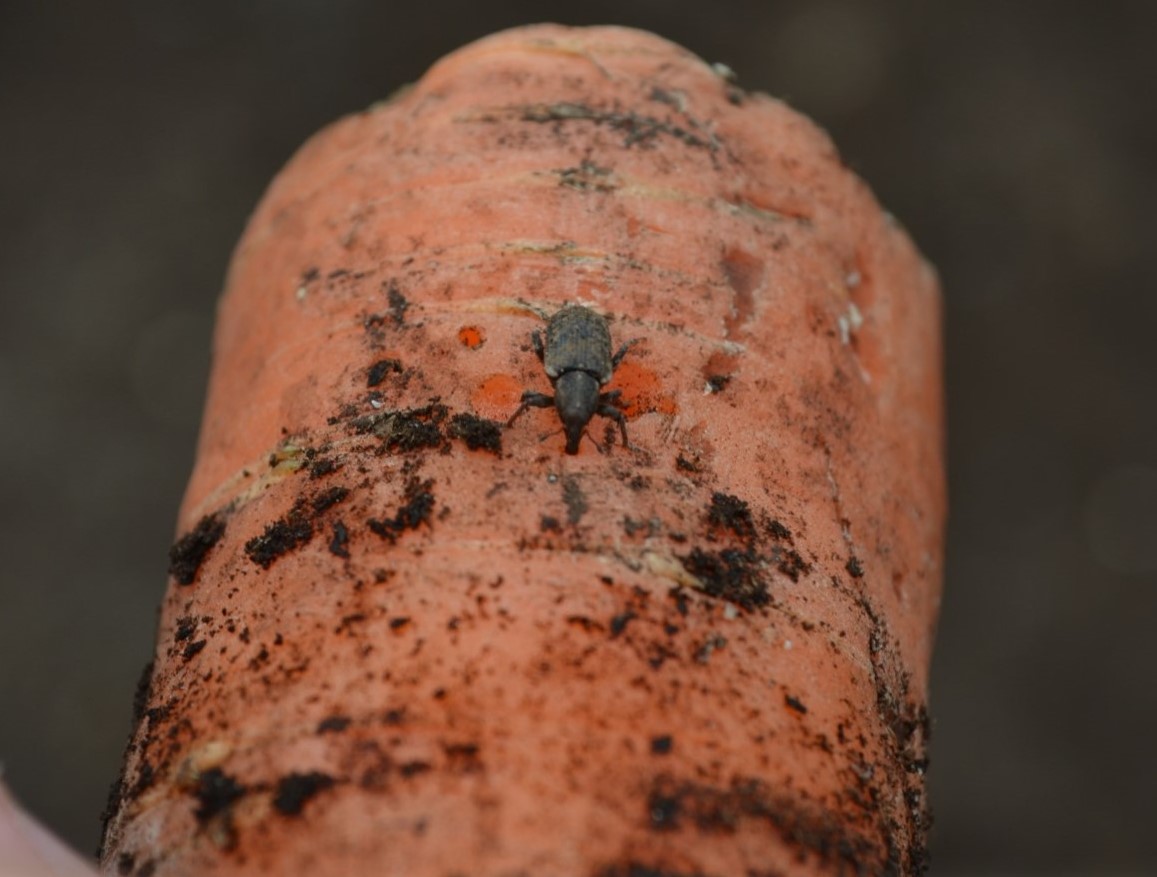Carrot Weevil

Scientific Name
Listronotus oregonensis
Description
Carrot Weevils are small, slender beetles that attack the roots of carrot plants. They are typically brownish with a distinct snout, and their feeding results in notches and scarring on the carrot roots.
Characteristics
These weevils have elongated snouts and a mottled brown appearance. Their chewing causes significant damage to the roots, leading to stunted growth and reduced yield in carrot crops.
Control Methods
- Organic sprays: Apply neem oil or insecticidal soap during early infestation stages to deter weevil activity without harming beneficial insects.
- Cultural practices: Practice crop rotation and interplant with repellent species. Remove and destroy infected plant debris to minimize breeding sites.
- Preventive methods: Maintain proper soil moisture and avoid excessive nitrogen fertilization which can attract weevils. Regular field monitoring helps detect early infestations.
- Biological controls: Encourage natural predators such as ground beetles, parasitic wasps, and insectivorous birds to help control weevil populations.
- Mechanical physical: Use row covers to prevent adult weevils from accessing the soil for egg-laying and employ hand-picking during peak activity.
Natural Enemies
- Ground Beetles
- Parasitic Wasps
- Insectivorous Birds
Plants Affected by Carrot Weevil
No associated plants found for this pest.